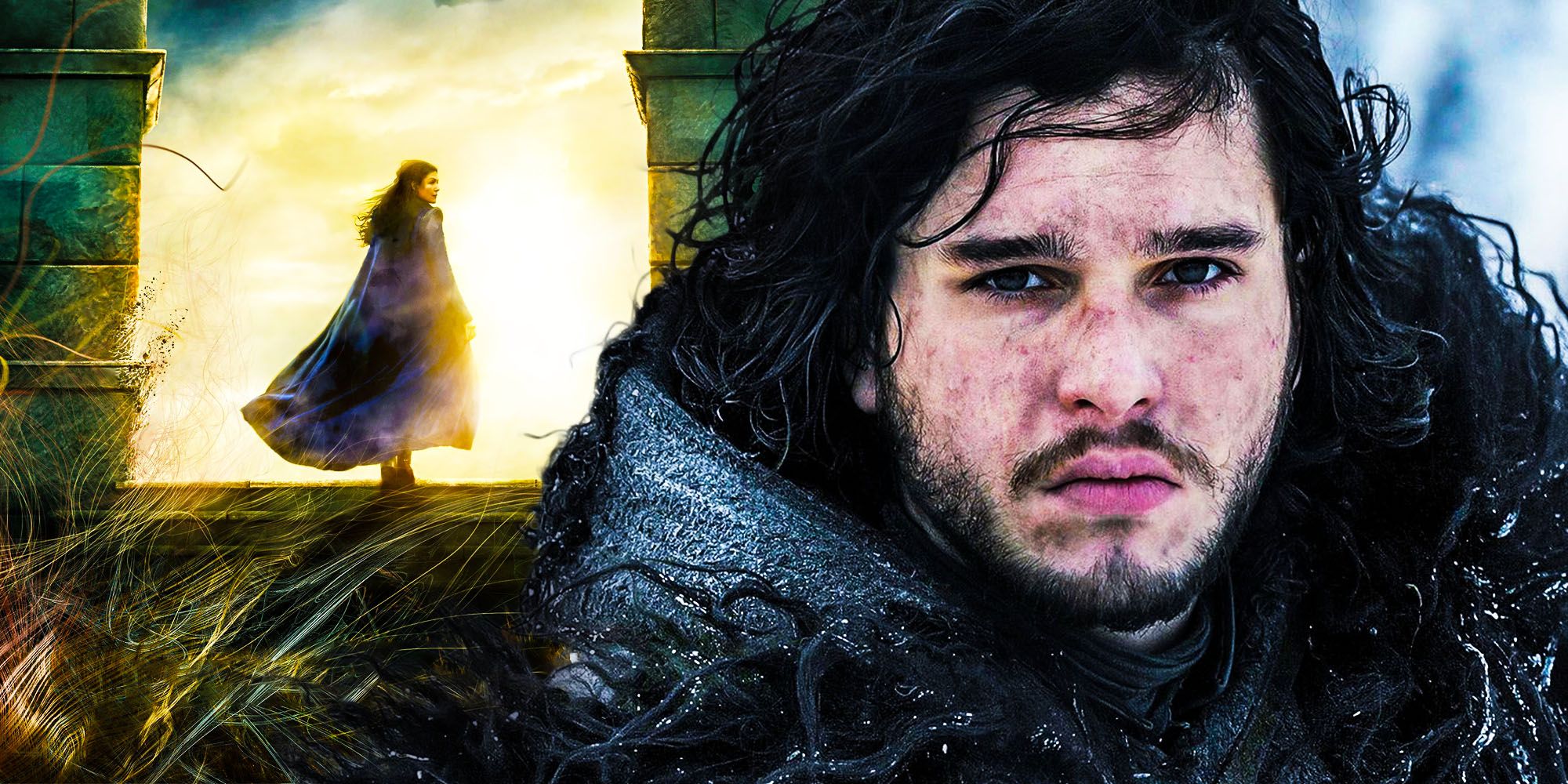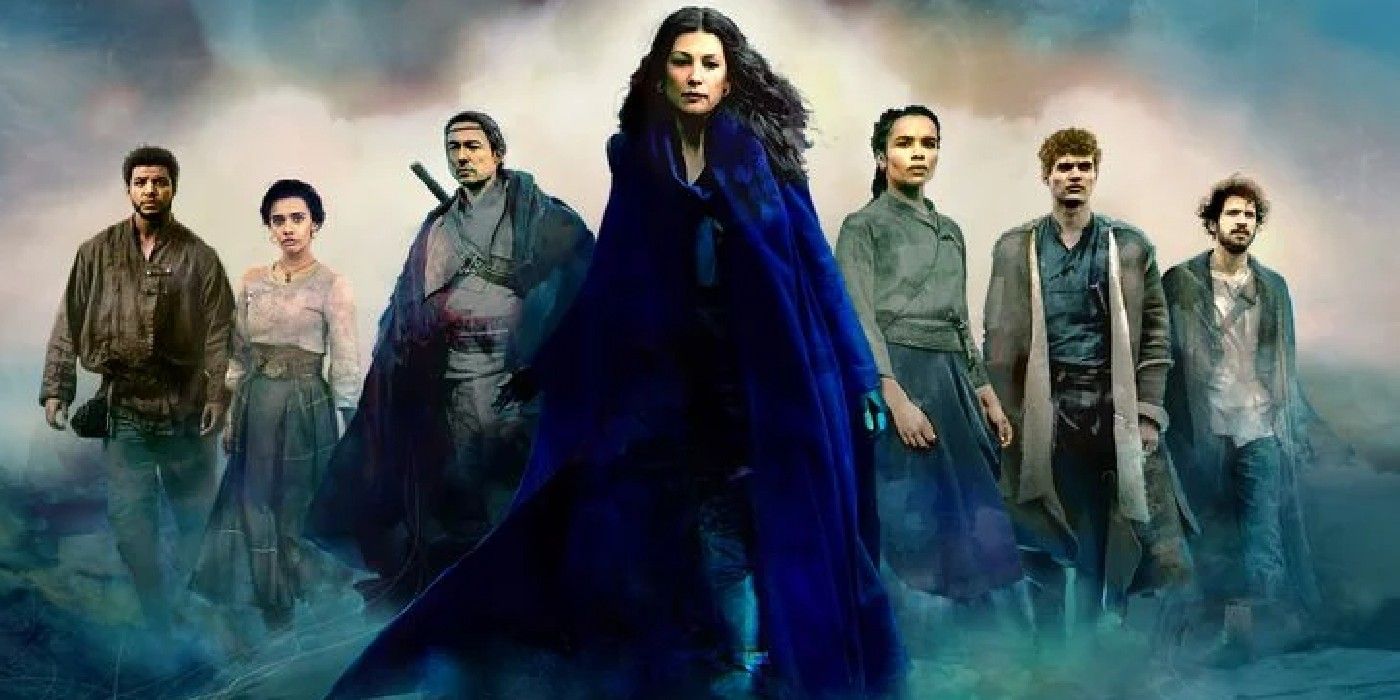Amazon’s ambitious Wheel of Time show is set to debut November 19, and will almost definitely be compared unfavorably, and unfairly, to Game of Thrones. Of course, there are certain similarities between the two franchises, as they're both based on book series that began in the 1990s, and are being adapted into big studio bets. Unfortunately, despite the fact the first book in the Wheel of Time series was released years before George R. R. Martin's first entry into the A Song of Ice and Fire saga, the massive cultural impact of Game of Thrones could at worst make Wheel of Time seem like a bland imitation.
The upcoming show is based on a 14-book series started by Robert Jordan and finished by bestselling fantasy author Brandon Sanderson after Jordan's death. Thanks to Wheel of Time's point-of-view structure, engrossing universe, and fascinating characters, the series often topped New York Times Best Seller list and ultimately became one of the best selling fantasy series since Lord of the Rings. With Amazon's Wheel of Time season 1 rumored to not even cover the entire first novel, viewers who found their way to fantasy television through Game of Thrones may find issue with this adaptation.
Wheel of Time's problem where it comes to Game of Thrones is simply one of expectations. Game of Thrones' hallmark blend of grit, sex, violence, and betrayal was enough to engage audiences who weren't necessarily interested in the fantasy genre. As a much more traditional fantasy saga, Wheel of Time is likely to feel tame in comparison on an episode-to-episode basis. Though not without its share of exciting fantasy elements such as the One Power, Wheel of Time tells a more traditional hero's journey and sets the pace closer to that of Lord of the Rings. It can't play the same game as Thrones, which never shied away from showcasing the darkest parts of humanity.
Of course, Wheel of Time has fantasy staples including massive battles, major deaths, and big surprises—there is a reason it earned a TV adaptation, after all. Even so, later seasons of Wheel of Time will still be unable to compete with the pure shock factor of events presented in Westeros. In keeping with its more traditional style and structure, Wheel of Time largely takes its time setting up big events, then delivers on them. Expanding Wheel of Time's characters and mythology is more important to the series than Red Weddings and other shocking reversals.
Viewers looking for a gritty, borderline nihilistic replacement for Game of Thrones will likely be disappointed by Wheel of Time, and it hurts the upcoming adaption just comparing the two. To do so could risk damaging the integrity of the series, which is as strong as it is in large part due to the massive character growth the lead characters experience over the course of the saga. While Wheel of Time is more old-fashioned than some of its modern contemporaries, it remains a beloved series, and a faithful adaptation will surely win over fans of the book series as well as genuine fans of the fantasy genre. As a number of changes to the first Wheel of Time book, The Eye of the World, have already been confirmed–a romance between lead characters Rand and Egwene, for starters–there may be some cause for concern that the show is taking some cues from Game of Thrones. Audiences will find out when Wheel of Time releases on November 19th.


